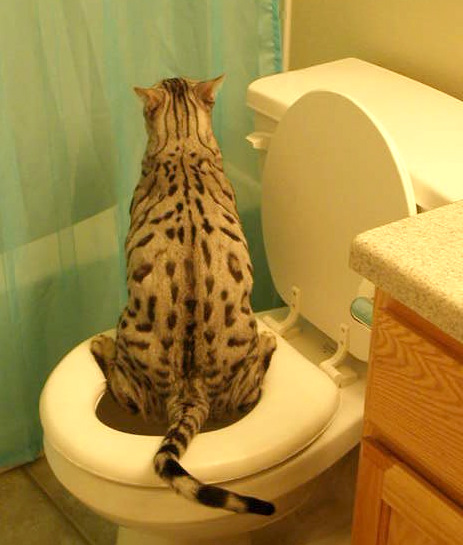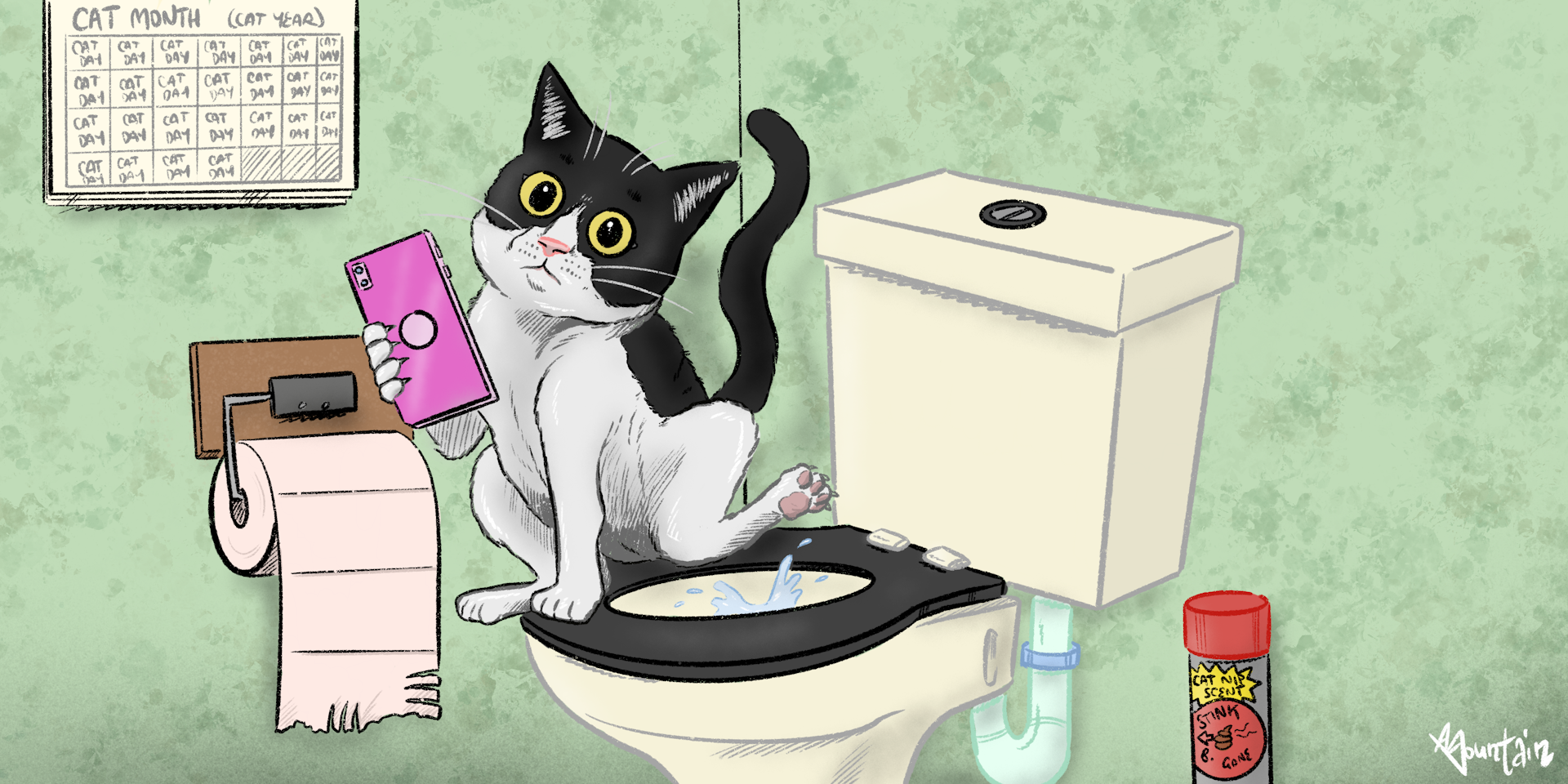We have found this article pertaining to Don’t flush cat feces down the toilet down the page on the internet and think it made good sense to share it with you on this site.

Introduction
As feline owners, it's important to bear in mind exactly how we dispose of our feline good friends' waste. While it may appear hassle-free to flush pet cat poop down the commode, this technique can have harmful repercussions for both the environment and human wellness.
Alternatives to Flushing
Fortunately, there are more secure and a lot more liable methods to deal with feline poop. Consider the complying with options:
1. Scoop and Dispose in Trash
The most usual approach of dealing with feline poop is to scoop it into a naturally degradable bag and throw it in the garbage. Be sure to use a specialized clutter inside story and deal with the waste without delay.
2. Usage Biodegradable Litter
Choose naturally degradable feline litter made from products such as corn or wheat. These trashes are environmentally friendly and can be safely thrown away in the trash.
3. Hide in the Yard
If you have a lawn, think about burying pet cat waste in an assigned location far from vegetable gardens and water sources. Make certain to dig deep adequate to prevent contamination of groundwater.
4. Set Up a Pet Waste Disposal System
Purchase a pet waste disposal system particularly designed for cat waste. These systems use enzymes to break down the waste, decreasing smell and ecological effect.
Health and wellness Risks
Along with ecological concerns, purging pet cat waste can also present health risks to human beings. Pet cat feces might have Toxoplasma gondii, a parasite that can cause toxoplasmosis-- a possibly severe ailment, specifically for expectant ladies and people with damaged body immune systems.
Environmental Impact
Purging pet cat poop introduces hazardous pathogens and bloodsuckers into the water, posturing a substantial danger to water communities. These contaminants can adversely influence marine life and compromise water quality.
Verdict
Liable pet ownership prolongs beyond offering food and sanctuary-- it also entails correct waste monitoring. By avoiding flushing feline poop down the commode and selecting alternative disposal techniques, we can lessen our ecological impact and shield human health.
Why Can’t I Flush Cat Poop?
It Spreads a Parasite
Cats are frequently infected with a parasite called toxoplasma gondii. The parasite causes an infection called toxoplasmosis. It is usually harmless to cats. The parasite only uses cat poop as a host for its eggs. Otherwise, the cat’s immune system usually keeps the infection at low enough levels to maintain its own health. But it does not stop the develop of eggs. These eggs are tiny and surprisingly tough. They may survive for a year before they begin to grow. But that’s the problem.
Our wastewater system is not designed to deal with toxoplasmosis eggs. Instead, most eggs will flush from your toilet into sewers and wastewater management plants. After the sewage is treated for many other harmful things in it, it is typically released into local rivers, lakes, or oceans. Here, the toxoplasmosis eggs can find new hosts, including starfish, crabs, otters, and many other wildlife. For many, this is a significant risk to their health. Toxoplasmosis can also end up infecting water sources that are important for agriculture, which means our deer, pigs, and sheep can get infected too.
Is There Risk to Humans?
There can be a risk to human life from flushing cat poop down the toilet. If you do so, the parasites from your cat’s poop can end up in shellfish, game animals, or livestock. If this meat is then served raw or undercooked, the people who eat it can get sick.
In fact, according to the CDC, 40 million people in the United States are infected with toxoplasma gondii. They get it from exposure to infected seafood, or from some kind of cat poop contamination, like drinking from a stream that is contaminated or touching anything that has come into contact with cat poop. That includes just cleaning a cat litter box.
Most people who get infected with these parasites will not develop any symptoms. However, for pregnant women or for those with compromised immune systems, the parasite can cause severe health problems.
How to Handle Cat Poop
The best way to handle cat poop is actually to clean the box more often. The eggs that the parasite sheds will not become active until one to five days after the cat poops. That means that if you clean daily, you’re much less likely to come into direct contact with infectious eggs.
That said, always dispose of cat poop in the garbage and not down the toilet. Wash your hands before and after you clean the litter box, and bring the bag of poop right outside to your garbage bins.
https://trenchlesssolutionsusa.com/why-cant-i-flush-cat-poop/

Do you appreciate more info about How to Dispose of Cat Poop and Litter Without Plastic Bags? Try to leave feedback below. We'd be delighted to know your responses about this article. Hoping to see you back again soon. Enjoyed our post? Please share it. Help somebody else locate it. Thanks a bunch for your time. Visit us again soon.
View More